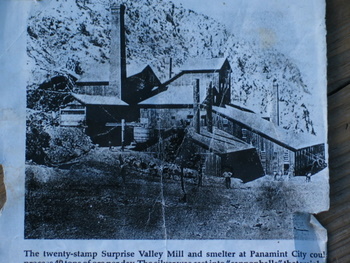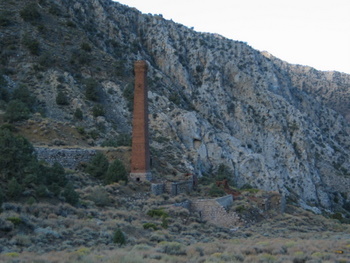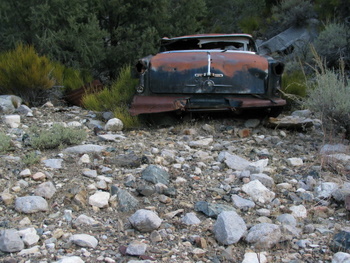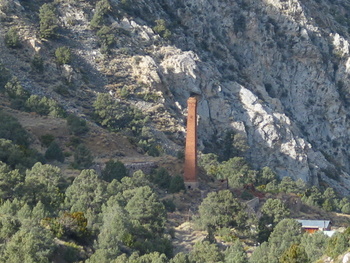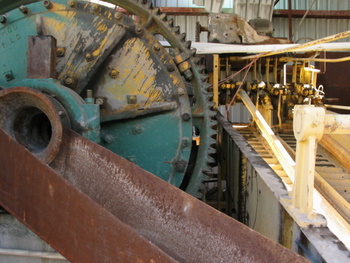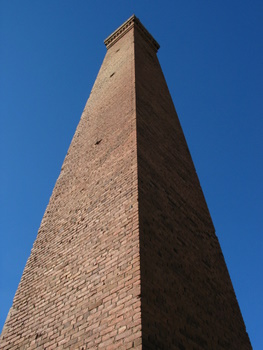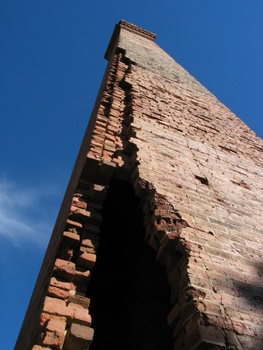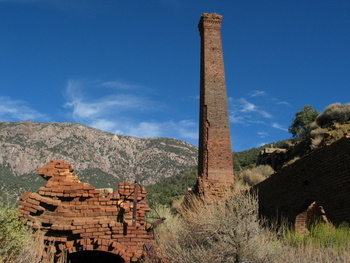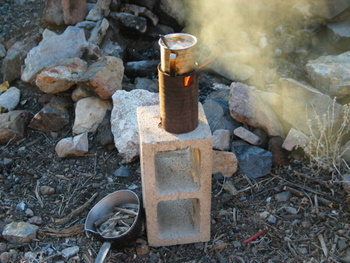Fall Haul 2006
Part two
|
***
In the Hilton is a photograph of how the mill looked in the 1870's. The photo on the right is from pretty much the same view. Wikipedia says: "Founded in 1873-74, the town grew to (a population of 2,000) include many mills, saloons, stores, a red light district, a cemetery—all built along the uppermost end of the Surprise Canyon. Panamint City was regarded as a "bad and wicked" town, with Death Valley at one end of town and the Panamint Range at the other end. Due to the constant hijacking of the ore wagon, the miners soon cast the silver into large ingots (400 pound balls) that were too big and heavy to be stolen. On July 24, 1876 a flash flood roared down the canyon and washed (out) nearly the entire town. ~~~~~~~~~~~~~~~~~~~ The original mill operated two years. Ironically the mill built in 1982 came to an end after two years of operation when a flash flood took out the canyon again.
In the morning I hiked up Water Canyon looking for the cabin I saw in 1981 that had the weird caretaker. I didn't see that cabin but I did come across the remains of Thompson's Camp.
Hiking back down I had a great view of the Smelter Stack with the "Hilton" roof in the lower right corner.
I poked around a bit in some of the local mines.
And explored the 1982~84 mining equipment that was abandoned when the canyon washed out.
Here's a close look at the Smelter Stack. The southeast corner in the left photo and the falling apart northwest corner in the right.
It's going to be a damn shame when it finally falls over.
Another fine evening dinner using my tin can stove. I also brewed my morning tea followed by oatmeal on this simple little stove. All it takes is a handful of little sticks and debris from around the fire ring in front of the Hilton. I kept extra sticks in the bent up pot next to the concrete block to add if I need more heat.. Ray Jardine's book about lightweight backpacking gave me the idea for this stove.
|
